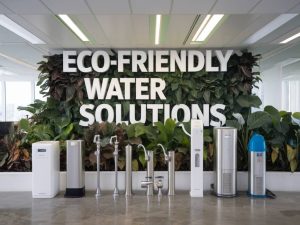water and wellness: how hydration boosts employee productivity

water and wellness: how hydration boosts employee productivity
In today’s dynamic work environment, employee productivity is a crucial metric for business success. Yet, one often overlooked factor that substantially impacts productivity is hydration. Understanding the relationship between water and wellness and how proper hydration can boost employee productivity can empower businesses to implement effective strategies that enhance work performance.
The Science Behind Hydration and Cognitive Function
Water is essential for nearly every physiological system in the human body, including the brain. The human brain is approximately 75% water, and maintaining optimal hydration levels is key for preserving cognitive functions. Hydration impacts concentration, alertness, and short-term memory.
Dehydration, even at mild levels, can lead to a decline in mental performance. Studies show that a loss of just 1-2% of water in the body can cause fatigue and difficulty concentrating, reducing workplace effectiveness. Thus, ensuring that employees remain hydrated is not only beneficial for their well-being but is also a strategic move for boosting productivity.
Hydration’s Role in Physical Wellness
Beyond mental agility, proper hydration is crucial for physical health, affecting everything from digestion to joint lubrication. Employees who are well-hydrated are less likely to experience discomfort or illness related to dehydration.
- Joint Health: Water helps lubricate joints, which is essential for those performing physical tasks or spending long hours at a desk.
- Digestive Efficiency: Adequate water intake supports efficient digestion and helps prevent issues like constipation.
- Temperature Regulation: Hydrated individuals are better able to maintain their body temperature, which is vital in high-stress or high-temperature work environments.
Therefore, encouraging proper hydration can contribute to a healthier, more physically capable workforce, ready to tackle daily tasks with energy and resilience.
Practical Strategies for Promoting Hydration in the Workplace
Employers can adopt various strategies to promote hydration among employees, thus supporting their productivity and overall wellness. These initiatives can create a culture that values health and efficiency.
- Install Water Stations: Provide easy access to clean drinking water by installing water stations throughout the workplace. Ensure that these stations are regularly maintained and accessible.
- Offer Reusable Water Bottles: Distribute branded, reusable water bottles to employees to encourage regular water intake. This initiative also supports environmental sustainability.
- Hydration Breaks: Encourage short breaks specifically dedicated to drinking water, similar to coffee or snack breaks.
- Employee Education: Organize workshops or seminars on the importance of hydration and its impact on workplace performance and personal health.
The Connection Between Water Quality and Employee Satisfaction
While ensuring employees stay hydrated is important, the quality of water they consume is equally crucial. Poor water quality can deter employees from drinking water and impact their health negatively. Providing purified or filtered water can enhance employee satisfaction and encourage more consistent hydration practices.
Implementing a water quality management system in the workplace ensures that employees have access to clean and safe water. This step not only boosts their health and productivity but also reflects a company’s commitment to their well-being, fostering a more engaged and satisfied workforce.
The Economic Benefits of Promoting Hydration
Investing in employee hydration yields economic benefits for businesses. Hydrated employees are less prone to illnesses such as urinary tract infections or migraines, which can result from dehydration, leading to fewer sick days. Additionally, higher concentration levels mean more efficient and effective work, directly impacting profitability.
Moreover, companies prioritizing wellness initiatives often see reduced turnover rates. When employees feel valued and cared for, they are more likely to remain loyal to the company, reducing hiring and training costs associated with high turnover.
Integrating Hydration into Wellness Programs
Many organizations have begun to incorporate hydration into broader wellness programs. This integration helps underline the importance of a holistic approach to employee health. Companies can include hydration challenges, where employees track their water intake for rewards or recognition, fostering a supportive community around health goals.
Additionally, technology can play a supportive role. Countless applications and wearable devices can remind employees to drink water and track their intake, making it easier to maintain hydration throughout the day. Such tools encourage personal accountability and allow wellness programs to be tailored to individual needs.
Understanding Cultural Factors in Hydration Habits
Cultural attitudes towards hydration also play a significant role in how employees consume water. In some cultures, regular water intake is embedded in daily routines, while in others, less emphasis is placed on frequent hydration.
Employers with a diverse workforce should be cognizant of these differences when crafting hydration initiatives. Customizing hydration strategies to accommodate various cultural backgrounds demonstrates inclusivity and ensures that all employees have the tools and encouragement necessary to maintain optimal hydration.
Final Thoughts on Hydration and Productivity
By understanding the critical connection between water and wellness, businesses can effectively implement strategies to enhance employee productivity. Proper hydration supports both cognitive and physical health, resulting in a more efficient, satisfied, and resilient workforce. Making small but impactful changes can lead to significant gains in productivity and employee well-being, proving that sometimes the simplest solutions hold the key to improved business performance.





